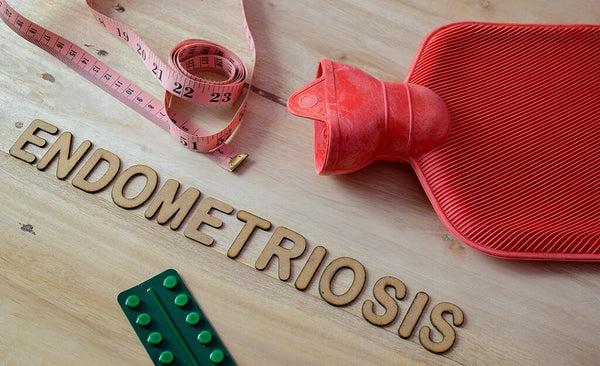Managing PCOS Naturally
PCOS is a complex condition that requires a holistic approach to manage symptoms. In natural medicine, it is advisable to treat the cause of any condition by addressing not just the symptoms but also the underlying hormonal imbalance.
It is critical to manage diet with low glycemic index foods to regulate blood sugar levels. Our free 8-week program is the perfect guide for women with PCOS to assist in making the necessary changes to support any natural medicines which may be used to balance hormone production.
It is recommended to treat the adrenals as well as the ovaries and reproductive system in the case of hirsutism. When it comes to polycystic ovary syndrome (PCOS), underlying issues involving the immune system must be tackled to prevent the growth of cysts. Blood sugar levels need to be managed as well, in addition to preventing the secretion of irregularly high amounts of male hormones.
Manage PCOS the natural way
While PCOS isn’t completely reversible, there are natural pathways that help keep the symptoms under control. You don’t have to be miserable with your condition; in fact, you can actually lead a pretty normal life without any significant complications.
Here are 10 helpful tips to help those with PCOS:
-
For liver support, increase consumption of ‘living foods’ high in detoxifying nutrients. These include coriander, parsley, wheatgrass, barley grass, spirulina, chlorophyll, sprouts and soaked grains and seeds. Living foods assist the liver to conjugate any excess hormones and removes them from the body.

You’ll also benefit from having green juices and a detox dip daily. Opt for vegetable rather than fruit juices to cleanse the lymphatic system and encourage liver detoxification.
-
Avoid ‘trigger foods’ which contribute to lymphatic and liver congestion. Examples of these are dairy, wheat, sugar, processed foods, alcohol, tea and coffee. We recommend you supplement with Happy Liver to help improve your liver function.
-
A mostly vegetarian and oestrogen-free diet consisting of whole foods can help with PCOS. Load up on leafy green vegetables and bitter foods to help clear excess hormones. You may also add a variety of healthy vegetarian fats.
-
Choose an alkaline diet with lots of fresh fruit and green leafy vegetables, oily fish, and grains (millet, brown rice, buckwheat). Avoid red meat. Have fresh lemon juice and apple cider vinegar daily to help alkalise the body.
-
Take the Happy Hormones natural formula daily to help rebalance the endocrine system. Avoid the use of synthetic hormones like the pill or those usually prescribed for hormone replacement therapy (HRT).

-
Stay hydrated. Your best options for increasing fluid intake are filtered water and herbal teas. Chamomile is a good choice and spearmint is great for reducing high androgen levels.
-
Avoid alcohol, drugs and smoking. Caffeine and stress can also contribute to inflammation.
-
Pay special attention to adrenal support. A B-vitamin complex is perfect as a gentle antioxidant and helps regulate the menstrual cycle. It also assists in reducing excessive amounts of androgens from the adrenals. Meditation, yoga, and time in nature can also help support the adrenals and heal the body.
-
Regulate blood sugar levels. Chromium has been studied and proven to be just as effective in naturally treating hyperglycaemia (blood sugar imbalances and sugar cravings). Chromium helps regulate blood sugar levels and insulin production and dysregulation of these may be a contributing factor to PCOS due to the increased production of androgens. Both Gymnema and Berberine are herbs proven to be helpful with insulin resistance.
- Get active. Exercise triggers the release of endorphins or those ‘feel-good hormones’. Exercise also brings down insulin levels and can help with weight loss. Exercise can be especially helpful in lowering insulin after a meal. If possible, go for a walk after you eat a large meal. Any increase in exercise helps, so find an activity, sport, or workout that you enjoy. Swimming, weight-bearing exercises, yoga, pilates, and core strength training are all excellent.
An added note on supplements
There are also some vitamins and minerals that help normalise insulin and androgen levels and reduce the effects of testosterone. These include N-acetyl-cysteine, vitamins E, B12 and B6, magnesium, and zinc.
We also recommend you check out the Happy Hormones 8-week program for a simple and easy way to ensure you’re receiving the proper nutrition for optimal hormonal health.
To download our free report, "How to Manage the Symptoms of PCOS" please click the button below:
Download the PCOS Report
REFERENCES
Moran et al. Dietary composition in the treatment of polycystic ovary syndrome: a systematic review to inform evidence-based guidelines. Journal of the Academy of Nutrition and Dietetics. 2013 Apr;113(4):520-45.
https://pubmed.ncbi.nlm.nih.gov/23420000/
Paoli A, Mancin L, Giacona MC, Bianco A and Caprio M. Effects of a ketogenic diet in overweight women with polycystic ovary syndrome. Journal of Translational Medicine. 2020; 18:104.
https://translational-medicine.biomedcentral.com/articles/10.1186/s12967-020-02277-0
Thakker D, Raval A, Patel I, and Walia R. N-Acetylcysteine for Polycystic Ovary Syndrome: A Systematic Review and Meta-Analysis of Randomized Controlled Clinical Trials. Obstetrics and Gynecology International. 2015; 2015: 817849.
https://www.ncbi.nlm.nih.gov/pmc/articles/PMC4306416/
























